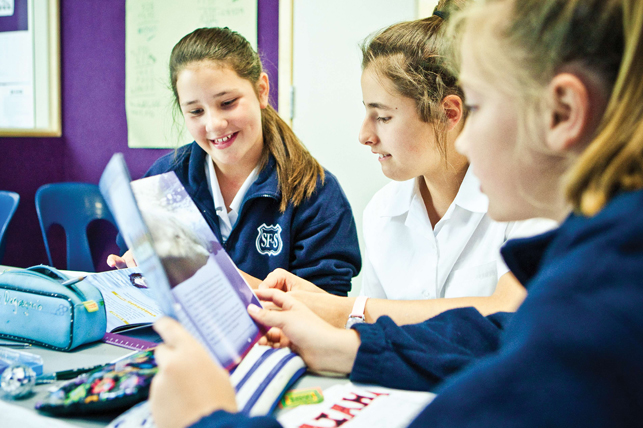Learners in years 7–10
Learners undergo more rapid change in early adolescence than at any other stage except infancy (At the Turning Point: The Young Adolescent Learner, 2003). Their physical changes are accompanied by emotional changes, leading to heightened sensitivity and self-consciousness. Learners in these years are searching for personal identity and are beginning to form their personal values. They want greater independence yet feel a strong need to fit into their peer group. Although their thinking is shifting from concrete to abstract, their intellectual development is slower than their physical development and they still need considerable adult support.
Reports from the Ministry of Education’s Middle Schooling Research Programme (2007–2010) reveal that New Zealand students are generally positive about middle schooling and achieve relatively well (The Education of Years 7 to 10 Students: A Focus on Their Teaching and Learning Needs, 2010). However, in these years, many learners’ perceptions of school become increasingly negative and their overall engagement in learning declines. This “switching off” can be accompanied by behavioural problems that affect educational participation and achievement, as evidenced by increasing rates of truancy, expulsions, and stand downs. Māori boys are the group most vulnerable to these experiences.
American researcher Robert Crosnoe (2011), who explores the social turbulence of adolescence, says that educators need to pay greater attention to the informal part of adolescents’ education, which takes place within their school peer culture (and subcultures) and helps them develop the resilience to cope with social pressures. He shares tips for educators and parents in a set of video clips at Vimeo: How teachers can help fight bullying.
Improving the transition: Reducing social and psychological morbidity during adolescence
This recent report from the Prime Minister’s Chief Science Advisor (2011) addresses New Zealand’s high adolescent mortality and morbidity, reflected in our high rates of teenage depression, suicide, pregnancy, and binge drinking. The report highlights the contextual changes that create both challenges and opportunities for today’s young people. For example, while social media and new technology can enhance well-being, they also promote the risk-taking behaviour associated with adolescence. The report recommends a “whole-of-life” approach to providing young people with the skills to transition smoothly from childhood to adulthood. By designing their curriculum around the key competencies, schools can develop meaningful life skills programmes that are relevant to their local communities.
Guiding questions He pātai
- What are the rewards of teaching students in the middle school years?
- What are the social, emotional, and academic needs of this age group? How does your school or classroom programme address these needs?
- How well are the programmes working? How do you know?
- How does your school ensure continuity and connection for students as they transition between different learning settings?
Creating a culture of support at Hauraki Plains College
Hauraki Plains College is engaged in a continuing change process that aims to make new students quickly feel supported, connected, confident, and ready to learn. Its success is shown by NCEA results that are among the highest in New Zealand.
The process includes the college's leadership of a school cluster within which it has formed strong relationships with contributing schools, including regular conversations about student transitions and learning. The college has also introduced a Junior Diploma of Learning, which is designed to motivate and enhance student engagement, progress, and achievement. The diploma addresses the five key competencies so that students are well prepared for learning at senior level. A literacy focus supports underachieving year 9 and 10 students to improve their reading comprehension.
The college has also created a senior graduation programme, which requires students to set and attain learning goals, contribute through school and community service, and acquire valuable life skills such as producing a curriculum vitae and managing personal finances.
The college builds positive relationships between students, staff, and families through its “river group” programme, which aims to make every student believe that “they can, they matter, and they belong”. Each group consists of around 14 students, who meet daily. A teacher coaches the group throughout the students’ time at college, supporting them to build connections with one another and between home and school. Staff, families, and students are enthusiastic about the initiative:
The teachers seem to take a real interest in individual children … They have built a huge relationship with individuals, and that is really neat, and it motivates the children to achieve.
Parent
For further information, see Key Competencies Online: Hauraki Plains College.

